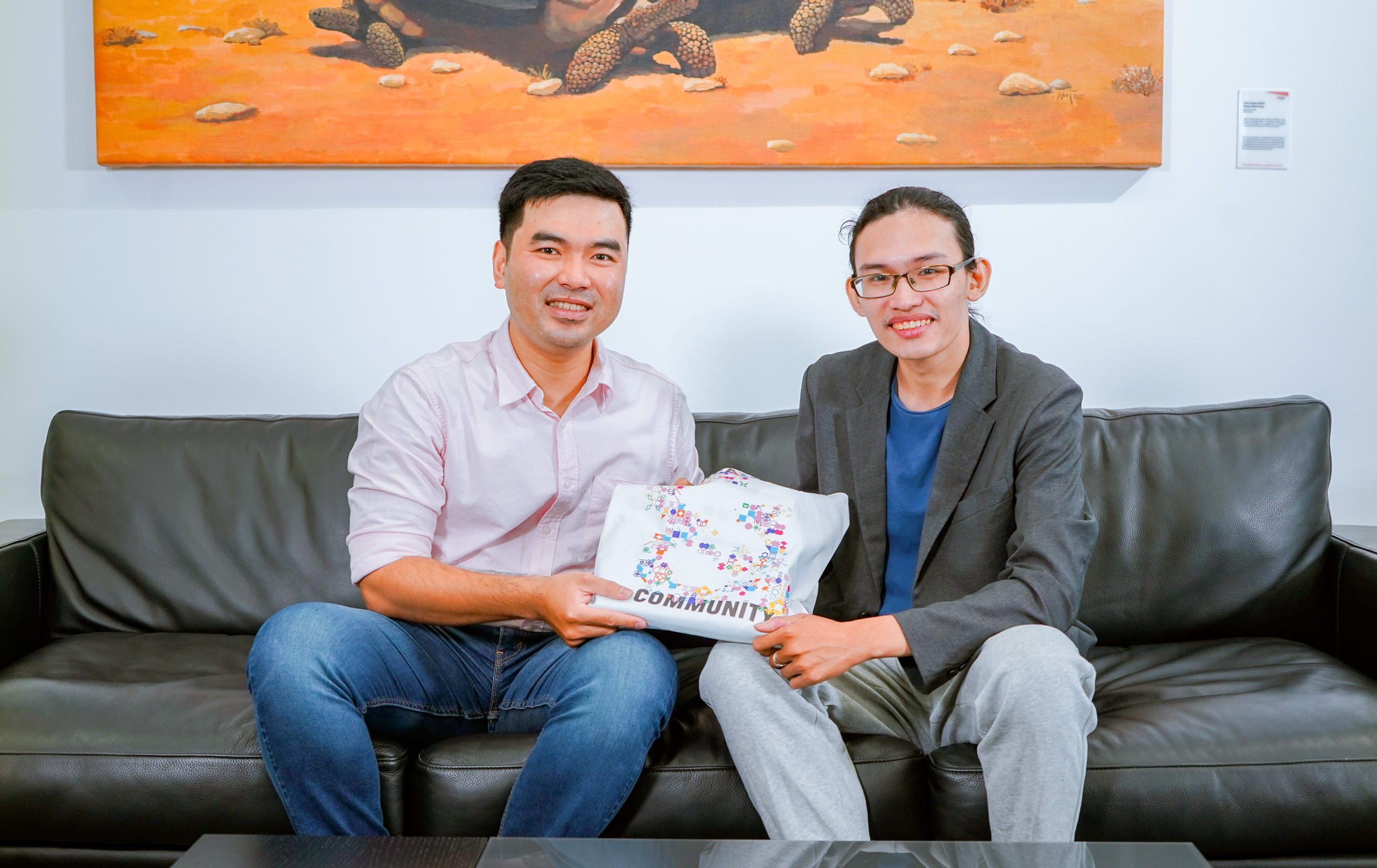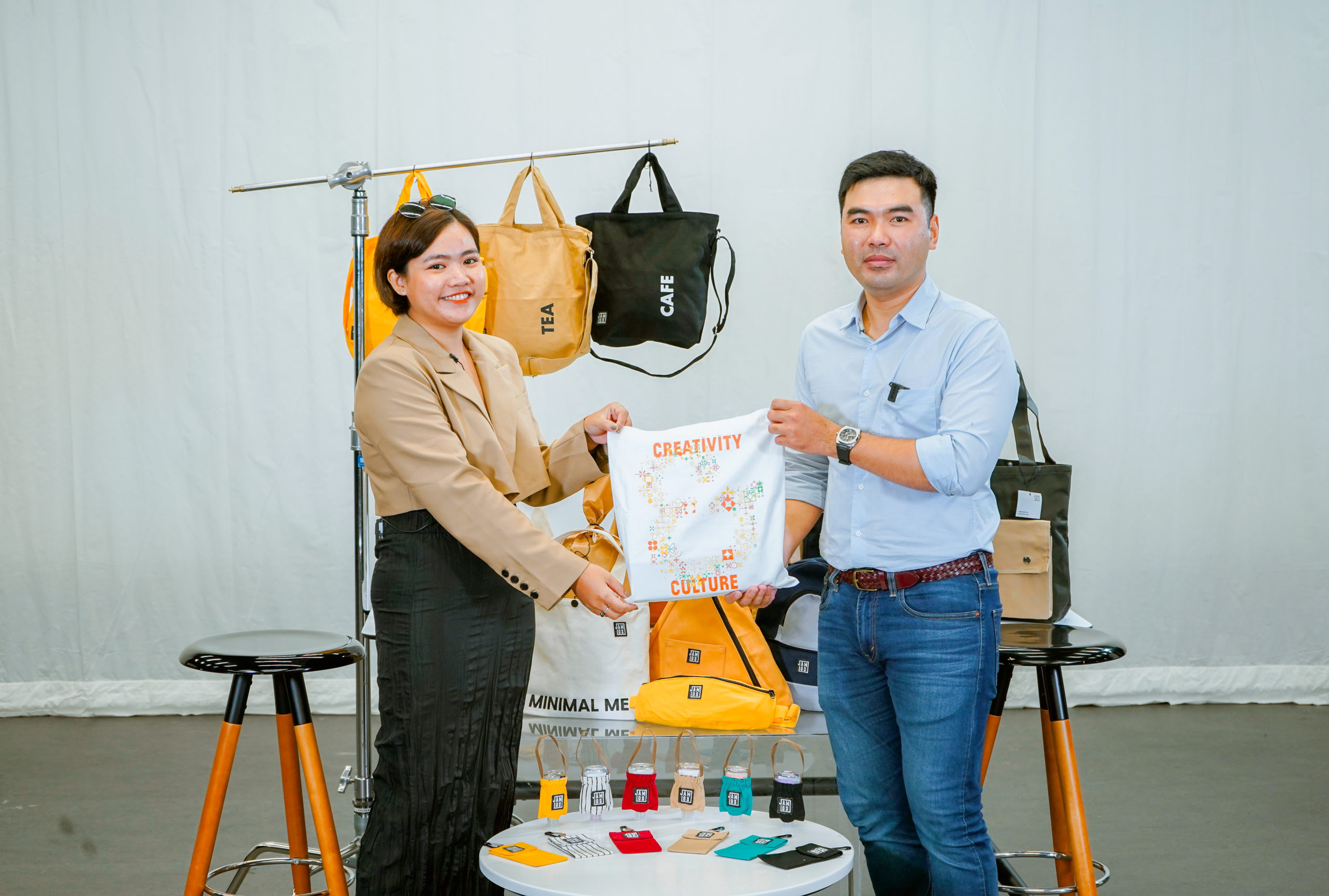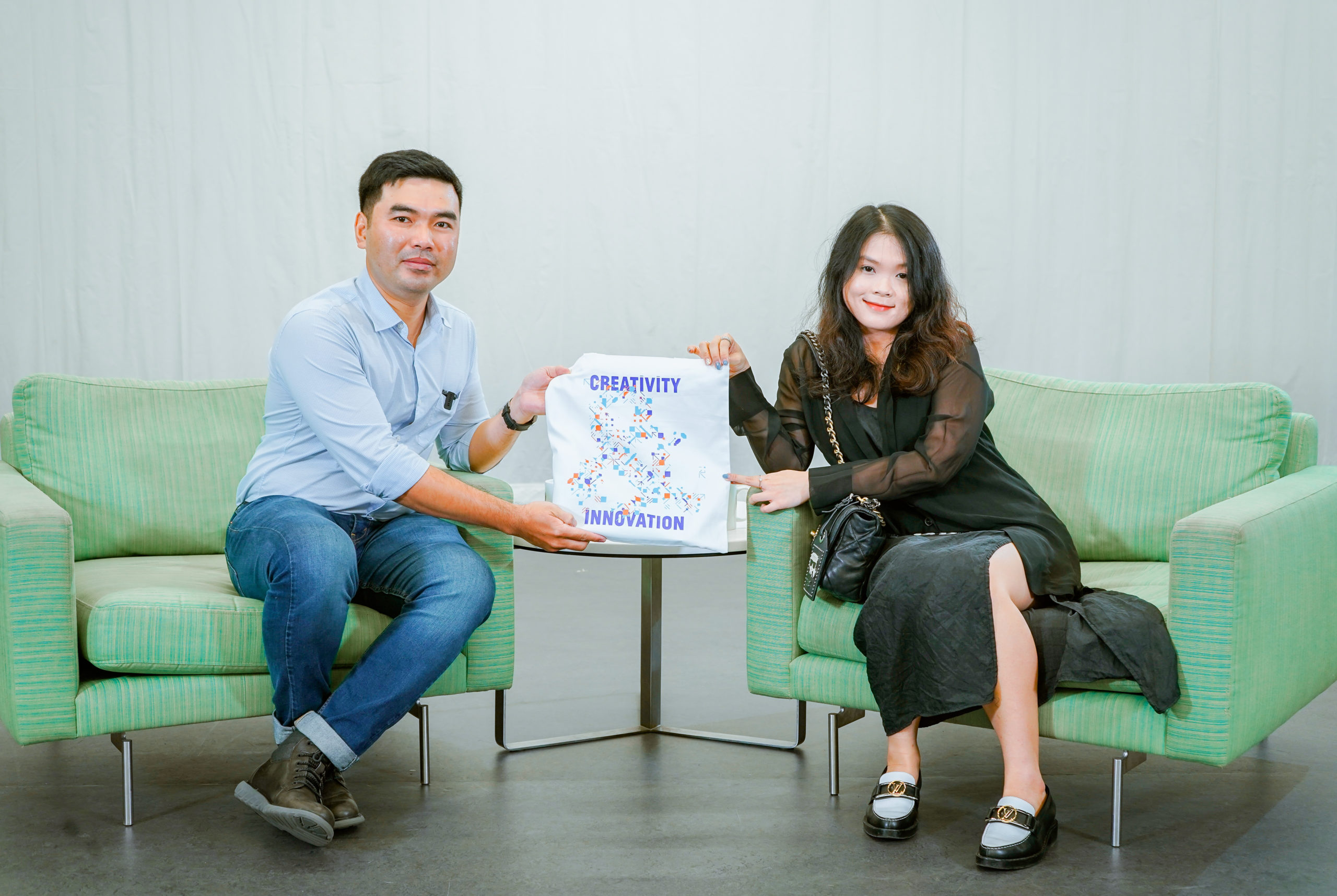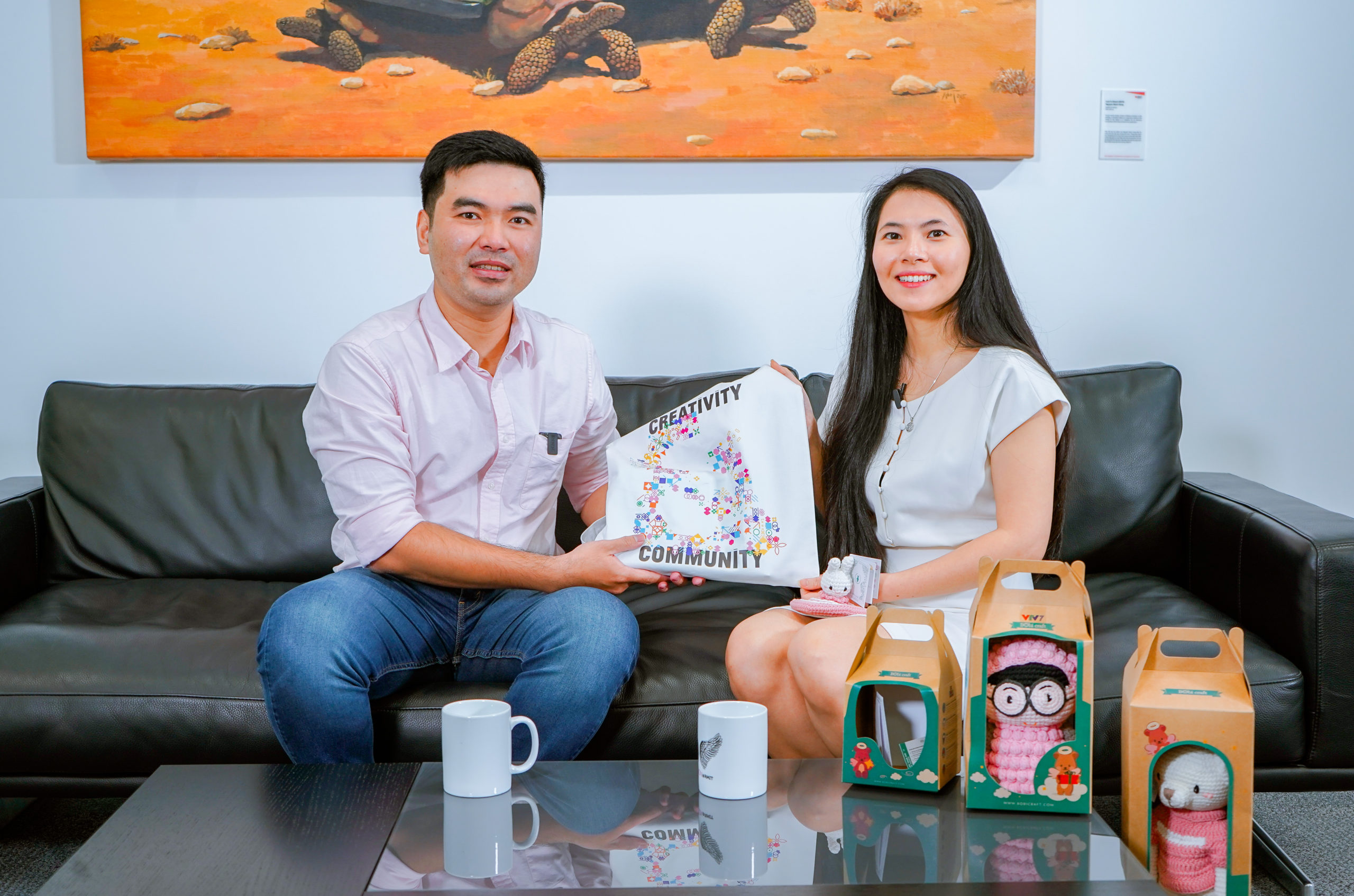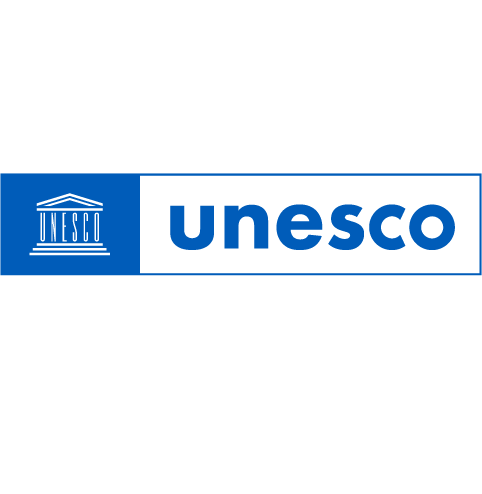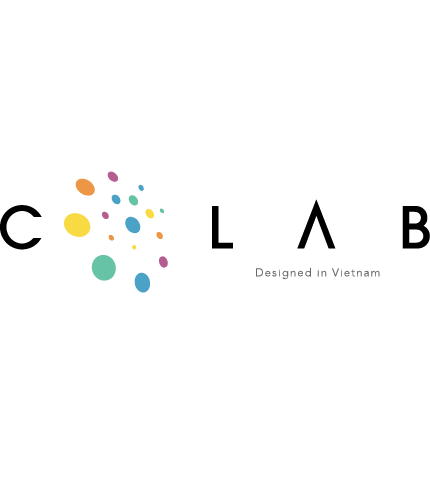Day 03 of the seminar series “Creativity: The Game Changer” took place via the online platform of Vietnam Festival of Creativity & Design, featuring four former students of RMIT University Vietnam – having worked in different industries upon graduation they’ve all attained certain achievement on their respective career path. Sharing practical knowledge and insights, the four speakers opened up pathways towards thoughts and inspiration – on the ‘ultimate importance’ of creativity, of forging ahead, taking risks, and following through to the end.
*
“Choosing the wrong major is not a serious issue”
Starting the event was a talk with Nguyen Thien Toan, co-founder of Ngu Hanh Games (NHG) – a creative studio specialising in developing board games that are based on the history and culture of Vietnam. NHG was founded in 2018 when Toan and a friend quit their jobs at a financial company and wanted to turn their passion for board games into a startup project. At the time, they noticed a lack of products based on stories close to the heart of the Vietnamese, while the board game market itself was still too young; with many investors hesitating to enter, some even mistaking it for ‘gambling’. Building from scratch, NHG had to use creativity to develop their own process and mechanism in order to convince customers and partners to use, take stock of and distribute their products. This process was humorously dubbed by Toan as one of làm đại – ‘just do whatever’. He shared in the talk: “When you have to find solutions to a problem that never occured before, the solutions could be good or bad, the only way to find out is to dive into it.”
Indeed, NHG never stays put: high chances are Toan and NHG managing executives can be found in board game cafes, talking and discussing with players. After almost two years, NHG board games have gained a considerable amount of feedback, mostly from high-school or university students; and while the feedback could be positive or negative it all contributed to NHG’s development of better products with a vision towards the international stage. “In the near future NHG will focus more on visuals, storylines, content, game rules, with multiple layers for players to dive into,” Toan shared. NHG currently has three products on the market: Len Mam, inspired by Vietnamese cuisine; Hoi Pho, set in Hoi An in the 17th century; and Kinh Luoc revolving around the exploration of the land of ‘Dang Trong’ – now the Southern region of Vietnam.
Studying and working in Finance after graduation, Toan forged ahead another career path with his passion for Vietnam’s culture and board games. Toan also shared a positive outlook on this change of pathway: “Studying Finance allows me to organise my own thoughts systematically. Logic and accuracy have helped me so much in developing board games. I call that ‘creativity inside the framework of logic’, which could help ensure that I don’t go overboard and wander about aimlessly. So I think choosing the wrong major is not a serious issue, what’s important is whether you are in the right job or not.”
*
“Creativity needs accompanying by practice”
Jo Lam is an RMIT Vietnam alumni with a degree in Professional Communications. In 2014, shortly after her graduation, Jo founded the canvas bag brand Jamlos, well-received by many thanks to its user-friendly and diverse range of products. Jo does not consider bags and backpacks as mere accessories, but as companions helping its owners to tell their stories and to express themselves. Function-wise the canvas material and dynamic designs of Jamlos respond to the needs of creatives, who are always on the move and need certain degree of flexibility in organising their work: “Sometimes we may not know what we need to bring to work, but a bag will help us bring the whole world with us when we go out.”
The dynamic spirit of Jamlos is present in how Jo develops products: inspired by things in everyday life (paper bags, milk cartons, fruits, etc.) and ideas she jots down in her notebook while taking time to observe surrounding environments. Jo believes that keen observation could help us discover plenty of unexpected, interesting things, which nurtures and cultivates our ideas. At the same time, a good idea itself is only half the story: “Creativity always needs accompanying by practice, realisation and prototypes, and doesn’t just stop at ideation. Only through practice can we understand scopes and limits. Creative inspiration never runs out, they only do when we stop creating.”
Jo also brought out a very interesting perspective in response to the event host’s question on whether the need to ‘make ends meet’ poses a constraint on one’s creative ability. She distinguished between ‘applied creativity’ and ‘artistic creativity’, and believed that understanding the purpose of one’s creativity would render it even more effective and help us overcome any inhibition in our thinking. Thus the advice from Jo to young people is to determine the nature of their work to develop an appropriate ‘strategy’: “If one is willing to take risks one should just forge ahead and follow their path; otherwise if one’s not willing to take risks one must be prepared to abandon certain elements from the initial plan.”
*
“Experience, and learn from it”
Before becoming a freelance screenwriter, Nguyen Thi Minh Chau studied Digital Media at RMIT Vietnam. She believed that this major helped her greatly hone the skills applied in her creative job and better convey ideas to partners and clients through sketches and videos. Thanks to this, she’s gained certain advantages over fellow screenwriters who are more focused on the textual medium. Fresh, modern design aesthetics and thinking are applied by Chau and her collaborators in several successful music videos in recent years, including Hoang Thuy Linh’s De Mi noi cho ma nghe and Ke cap gap ba gia, as well as Hoa Minzy’s Khong the cung nhau suot kiep. Each video tells a vibrant story inspired by the country’s history and cultures – such as the ‘universe of Vietnamese literature’ with the likes of Mi and A Phu, Chi Pheo, Thi No, Lao Hac, Cau Vang, Xuan Toc Do… in “De Mi noi cho ma nghe”, or the stories of historical figures (Emperor Bao Dai and Empress Nam Phuong) in Khong the cung nhau suot kiep.
To Chau, the pre-production phase for a project could take up to two years, taking immense effort to research and learn from numerous resources. However, personal experiences and feelings are also of utmost importance, she shared, “Creatives must build up their own experiences to integrate their personality into their work. As well, young people should aim to interact with a significant number of people, to find out what types of people you can best work with, or those who can provide motivation for you to grow even if you don’t get along with them. This is what young people will not learn in school. In short: experience, and learn from it.”
*
“There’s no easy path”
It is her experience with different jobs and environments that helped Nguyen Tran Van Thuy find her calling. At a time when she seemed to ‘have everything’ managing her own business in the UK, she had the chance to interact with the Vietnamese community here – many of whom having paid a large sum of money to go to the UK doing hard and even illegal labour, living in dangerous conditions; one of them (whom Thuy knew) even passed away in this foreign land. All this made Thuy decide to come back to Vietnam to contribute to her country and those less fortunate. She founded Bobi Craft, a business that makes high-quality handcrafted toys for children, creating stable employment for more than 400 workers, among those are housewives, seasonal workers, people with disabilities, and Agent Orange victims.
Nguyen Tran Van Thuy, Founder of Bobi Craft
The vision of Bobi Craft is to create Vietnamese products that have attractive and creative designs with humane values, in order to transcend the perception that Vietnamese products are ‘cheap and of low quality’. Thuy fully understands the importance and value of creativity, from the early days ‘figuring out their way’ when they started out as one of the first businesses in Vietnam to re-contextualise craftwork into a system of international standards – to when Bobi Craft started gaining recognition from the market and consumers, with products highly regarded around the world. “Creativity is the only thing that can help us improve and create a brand name”, she shared. “With Bobi Craft, we didn’t have an existing model to follow initially, and even if we did, others could have followed that as well. Then how would we ever break the mould? To be different we have to think differently. The more challenging it gets, the greater the need to come up with new and exciting ideas.” The same as the other speakers, Thuy also flexibly applies inspiration and thinking from other fields. In the future, Bobi Craft aims to integrate artificial intelligence technology to create smart toys, or other products that could act both as a plush toy and a cooling pad for children – small details that create a unique identity for Bobi Craft. When asked about her secret to generate these exciting ideas, she emphasized: “To make a difference, young people just have to practice and put in the effort. Too much technology can pose a constraint on creativity, making us lazier in our thinking. If you truly have the passion and belief, you must follow through until the end. There’s no easy path.”


